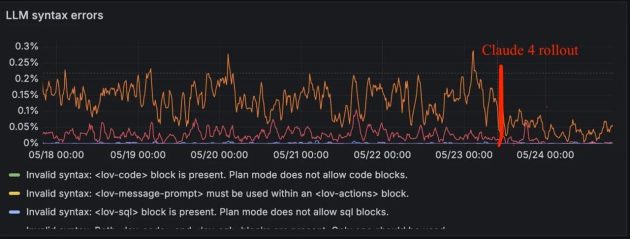

Lovable, a company that creates no-code/low-code services, reported that implementing Claude 4 in their platform resulted in a 25% reduction in syntax errors and a 40% increase in code generation speed.

Lovable uses Claude as the core of its AI assistant for generating web and mobile applications. After switching to Claude Sonnet 4 and Claude Opus 4, the company saw a noticeable improvement in quality — a decrease in LLM errors, increased stability, and faster project editing. According to founder Anton Osika, Claude 4 “erased most of the errors” in the code. The model even worked on long-running tasks for more than 7 hours without any performance degradation.
Anthropic recently launched Claude Sonnet 4 (free) and Opus 4 (paid). Opus showed 72.5% on the Software Engineering Benchmark (SWE-bench). Although Google Gemini 2.5 has an advantage in the context window (1 million tokens vs. Claude’s 200k), Lovable’s results demonstrate a practical advantage over Claude 4 in syntactic stability. This is especially valuable for no-code and prompt-based environments.
Claude 4 is not just another update — it is a powerful step forward in stability and code generation speed. A real-world case from Lovable confirms that the model is suitable for production and brings concrete benefits: fewer bugs, faster development cycle. Claude 4 confirms its reputation as one of the best AI models for coding in conditions of high competition from Google Gemini.

